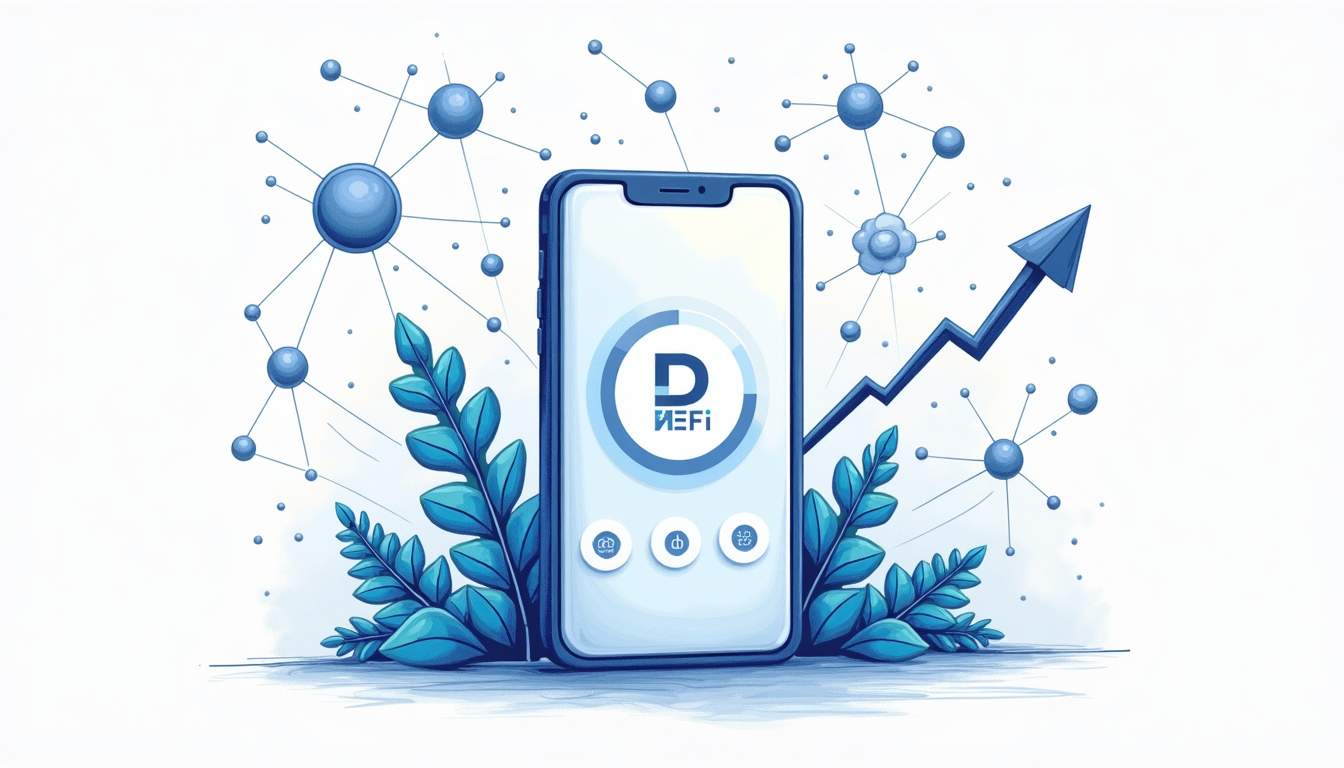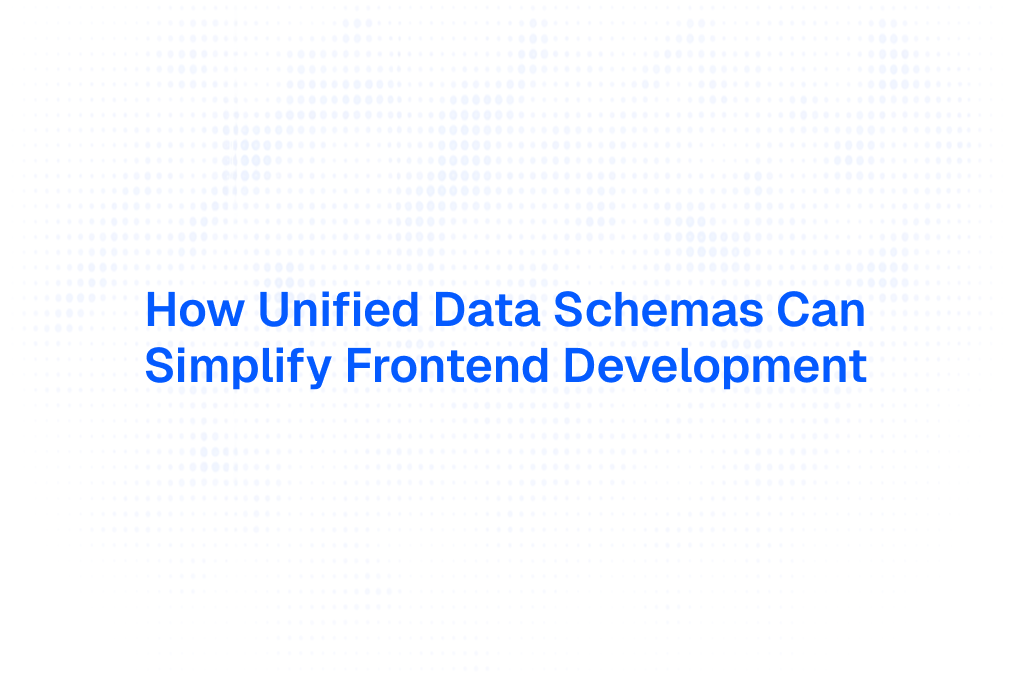Case Study: How a DeFi App Increased Uptime with Uniblock
In the rapidly evolving world of decentralized finance (DeFi), reliability and uptime are paramount. Even brief disruptions in blockchain connectivity can lead to significant financial losses, degraded user experience, and diminished trust. This case study explores how a leading DeFi application dramatically improved its uptime and overall reliability by leveraging Uniblock’s multi-provider RPC auto-routing solution.
The Challenge: Overcoming RPC Downtime in DeFi
DeFi applications depend heavily on Remote Procedure Call (RPC) endpoints to interact with blockchain networks. These endpoints serve as gateways, enabling apps to read blockchain data and submit transactions. However, RPC downtime or outages can cripple a DeFi app's functionality, leading to transaction failures, delayed updates, and lost revenue.
Before adopting Uniblock, the DeFi app relied on a single RPC provider. While this setup initially seemed straightforward, it soon revealed critical vulnerabilities:
- Frequent RPC outages: The single-provider model resulted in intermittent downtime, especially during network congestion or provider-specific issues.
- High latency spikes: Users experienced slow response times during peak hours, impacting transaction speed and user satisfaction.
- Escalating costs: The provider’s pricing model penalized high-volume usage, making scaling expensive.
Recognizing these pain points, the team sought a robust, scalable solution to ensure continuous blockchain access without compromising on speed or cost. The search for a more reliable RPC infrastructure led them to consider multi-provider strategies, which could distribute the load and mitigate the risks associated with relying on a single point of failure. By leveraging multiple RPC endpoints, the application could dynamically route requests to the least congested or most reliable provider, significantly enhancing uptime and performance.
Additionally, the team began to explore advanced caching mechanisms to further optimize performance. By implementing a local caching layer, they could reduce the number of direct calls to the RPC endpoints, thereby alleviating pressure during peak usage times. This approach not only improved response times for users but also reduced the overall cost associated with RPC calls, allowing the app to scale more efficiently. As they delved deeper into these solutions, it became clear that a comprehensive strategy combining multiple RPC providers and intelligent caching would be essential for maintaining a seamless user experience in the fast-paced world of DeFi.
Why RPC Auto-Routing Matters for DeFi Reliability
RPC auto-routing is an advanced infrastructure technique that dynamically directs blockchain requests through multiple RPC providers. Instead of relying on a single endpoint, auto-routing intelligently balances load and switches providers during outages or latency spikes. This approach offers several key advantages:
- Failover protection: If one RPC provider goes down, traffic is automatically rerouted to alternative providers, minimizing downtime.
- Load balancing: Requests are distributed across multiple endpoints, reducing latency and preventing bottlenecks.
- Cost optimization: Auto-routing can prioritize cheaper providers during low traffic periods, lowering operational expenses.
For DeFi apps, where every second counts and reliability directly impacts user trust and revenue, RPC auto-routing is no longer optional — it’s a necessity.
Moreover, the scalability of RPC auto-routing plays a crucial role in accommodating the rapid growth of the DeFi sector. As more users flock to decentralized finance platforms, the demand for seamless and efficient transactions increases exponentially. Auto-routing not only ensures that the infrastructure can handle surges in traffic but also adapts to varying usage patterns, making it a robust solution for developers looking to future-proof their applications. By leveraging multiple RPC providers, developers can also tap into diverse features and services that different providers offer, enhancing the overall functionality of their DeFi applications.
Additionally, security is another critical aspect that RPC auto-routing addresses. By distributing requests across various providers, the risk of a single point of failure is significantly reduced. This decentralization not only enhances reliability but also fortifies the application against potential attacks, such as DDoS, which could target a single RPC endpoint. As the DeFi landscape continues to evolve, ensuring that applications are resilient against such threats is paramount for maintaining user confidence and fostering long-term growth in the ecosystem.
Uniblock’s Multi-Provider RPC Solution: A Game Changer
Uniblock offers a sophisticated RPC aggregator platform designed specifically for Web3 applications. By integrating multiple top-tier RPC providers into a single endpoint, Uniblock delivers unparalleled uptime, latency reduction, and cost savings.
Key Features That Transformed the DeFi App’s Infrastructure
- Multi-Cloud Proxy (MCP) Integration: Uniblock leverages Google’s Multi-Cloud Proxy technology to route requests across various cloud providers, enhancing redundancy and geographical distribution.
- Real-Time Failover and Load Balancing: The platform continuously monitors provider health and latency, automatically rerouting traffic to ensure optimal performance.
- API Orchestration: Uniblock orchestrates multiple APIs seamlessly, reducing complexity for developers and improving scalability.
- Cost-Efficient Routing: Intelligent routing algorithms prioritize providers based on cost and performance, achieving up to 40% cost reduction compared to single-provider setups.
Implementation: How the DeFi App Integrated Uniblock
The integration process was straightforward and developer-friendly. The DeFi app’s engineering team followed a step-by-step approach:
Step 1: Assessing Current RPC Usage
They began by analyzing existing RPC call volumes, latency patterns, and outage incidents. This baseline data informed the configuration of Uniblock’s routing policies.
Step 2: Connecting to Uniblock’s Unified Endpoint
Instead of managing multiple RPC providers individually, the app switched to Uniblock’s single unified RPC endpoint. This endpoint automatically handled multi-provider routing behind the scenes.
Step 3: Customizing Routing Preferences
The team configured failover thresholds, latency sensitivity, and cost preferences to align with their specific operational goals.
Step 4: Monitoring and Optimization
Post-integration, the team utilized Uniblock’s dashboard to monitor real-time metrics, adjust routing rules, and ensure peak performance.
Results: Dramatic Improvements in Uptime and Performance
The impact of Uniblock’s multi-provider RPC auto-routing was immediate and measurable:
Uptime Increased to 99.99%
By eliminating single points of failure, the DeFi app experienced near-continuous availability. Failover between providers was seamless, preventing any noticeable service interruptions for users.
Latency Reduced by 30%
Load balancing across geographically distributed RPC providers decreased response times, enhancing user experience during high traffic periods.
Operational Costs Cut by 35%
Intelligent routing allowed the app to leverage cost-effective providers without sacrificing performance, optimizing infrastructure spend.
Scalability Enhanced
With Uniblock’s API orchestration, the app effortlessly scaled to millions of RPC calls per day, supporting rapid user growth without infrastructure bottlenecks.
Why Multi-Provider RPC Routing is the Future of DeFi Infrastructure
This case study underscores a broader trend in blockchain infrastructure: the shift from single-provider RPC setups to multi-provider auto-routing solutions. DeFi applications, in particular, benefit immensely from this evolution due to their high transaction volumes and critical uptime requirements.
Multi-provider RPC routing mitigates the hidden risks of relying on a single RPC provider, such as unexpected outages and vendor lock-in. It also aligns with best practices for decentralized systems by distributing trust and load across multiple infrastructure providers.
Moreover, innovations like Google’s Multi-Cloud Proxy (MCP) integration, as utilized by Uniblock, further enhance reliability by enabling multi-cloud routing strategies. This approach not only reduces latency through regional routing but also provides cost-effective redundancy.
Conclusion: Elevating DeFi Reliability with Uniblock
For DeFi applications aiming to deliver seamless, trustworthy services, RPC downtime is a critical challenge that cannot be ignored. This case study demonstrates how Uniblock’s multi-provider RPC auto-routing solution can transform infrastructure resilience, reduce latency, and optimize costs simultaneously.
By adopting Uniblock, the featured DeFi app achieved a new standard of uptime and performance, ensuring users enjoy uninterrupted access to decentralized financial services. As the blockchain ecosystem continues to grow, leveraging advanced RPC routing technologies will be essential for any project seeking to thrive in a competitive landscape.
Ultimately, Uniblock’s approach exemplifies the future of Web3 infrastructure — one where reliability, scalability, and cost-efficiency coexist through intelligent multi-provider orchestration.
Ready to elevate your DeFi application's reliability and performance? Start building with Uniblock today and join over 2,000 developers who are already experiencing the benefits of our Web3 infrastructure orchestration platform. With Uniblock, you can maximize uptime, minimize latency, and reduce infrastructure costs, all while enjoying the freedom from vendor lock-in. Embrace the future of Web3 infrastructure with Uniblock and scale your project with confidence.
.svg)

.png)




